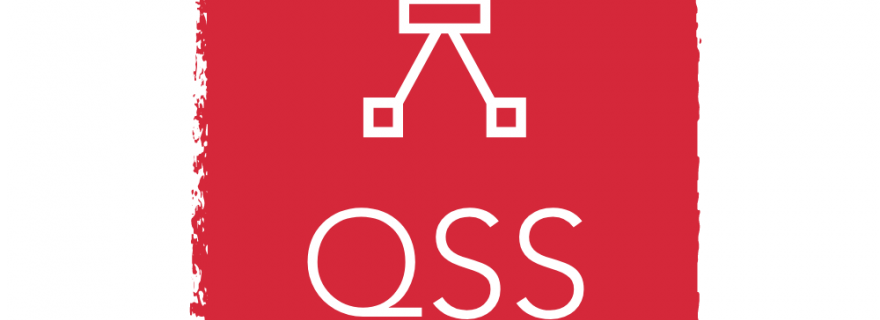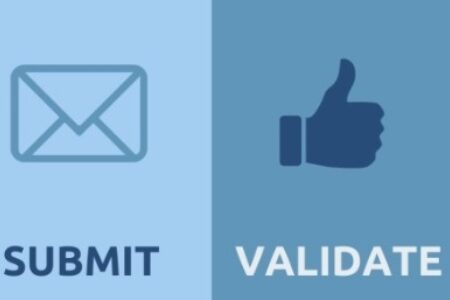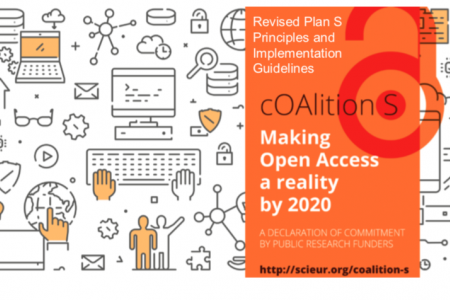How flipping a journal became about more than just open access
Waltman and Wouters explain how a whole editorial board resigned from one journal and launched another open access journal, with, importantly, open citations. They share their views on the future of scholarly publishing in general.
On January 14, 2019 the entire editorial board of Elsevier’s Journal of Informetrics (JOI) resigned. The editorial board wanted a journal with the same scope and same scientific standards, but owned by the International Society for Scientometrics and Informetrics (ISSI) (and not by the publisher), open access (instead of toll access) and with open citations. That is why, after resigning from JOI, they launched the new journal Quantitative Science Studies (QSS) with MIT Press [see news of the resignations and launch of the journal at the CWTS website and ISSI website respectively]. MIT Press participates in the Initiative for Open Citations (I4OC).
I interviewed Ludo Waltman (professor of Quantitative Science Studies and deputy director at the Centre for Science and Technology Studies (CWTS) at Leiden University) and Paul Wouters (Dean of the Faculty of Social and Behavioural Sciences, former director of CWTS and Open Science Coordinator at Leiden University) about the reasons for their decision and their views on the future of scholarly communication in general.
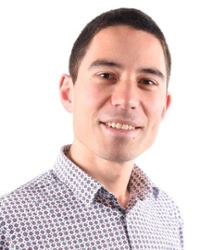
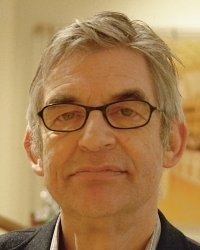
Images: Ludo Waltman and Paul Wouters, Leiden University
Why open citations became a breaking point
Ludo Waltman, Paul Wouters (who were JOI editor-in-chief and JOI editorial board member respectively), and the other members of the JOI editorial board, started thinking about moving the journal after a series of discussions with Elsevier about open citations. Making the citations in a published paper ‘open’ means that new services (see examples) can spring up that make use of the open citation data.
After the formation of the Initiative for Open Citations (I4OC) in 2017, more and more publishers started to provide open citations, sometimes after a small delay, but Elsevier kept refusing. Waltman and Wouters explained why open citations are important:
“Open citations will improve the findability and transparency of citations for publishers and authors; the open data will also improve systematic reviews, will help to give better insight into the influence of groups and authors, and the data are important for some researchers, especially in the field of scientometrics.”
Opening citation data is also important to enable the reuse of that data. Currently citation data is provided mainly by closed commercial systems, in particular Web of Science (owned by Clarivate Analytics) and Scopus (owned by Elsevier). That has a lot of disadvantages. Waltman emphasized that:
“the consequence of the data being only commercially available is that the data cannot be accessed by everyone, cannot be shared and cannot be published according to open principles. As a result, others cannot check or reproduce the data. That is especially problematic with research evaluation reporting and publishing academic research based on these datasets.”
Wouters stressed,
“That is why setting up open citation indexes is essential for transparency and reuse. This could make citation data open access to everyone, and it would be free for others to use the data and add services.”
Wouters explained that this potential threat to their business might be why Elsevier doesn’t support open citations:
“In contrast to companies like Springer and Wiley that do support open citations, Elsevier appears to be investing less in journals and more in data analytics. For Elsevier’s journals it would be an advantage if everyone could access the citations, but for Elsevier as a company, they can maybe profit more by 'owning' and selling access to citations through Scopus.”
While one could argue that academic journals should support the research community by making citation data freely available, JOI, with its closed citations, did not. After several discussions, Elsevier kept refusing to support open citations and that prompted Waltman, Wouters and the other members of the JOI editorial board to start thinking about moving the journal to a more open publisher. In addition, disagreements about the ownership of the journal and the journal’s policy for open access publishing also played a role.
Ownership of academic journals
According to Waltman:
“ownership of a journal is a fundamental issue. If the community is the owner, the community can decide what is best. With academic ownership we can prevent profit interests from dominating the management decisions about the journal. The issue of ownership is arguably more fundamental than issues such as open access and open citations. If you are not the owner, you can only ask your publisher for what you want. And if your publisher goes against your wishes, you basically have no options, except for stepping down from editorial positions, as we did in the case of JOI. Academic ownership means that the scholarly community is in charge and is able to decide how its journals operate.”
Elsevier owns the title JOI. The new journal QSS is owned by the International Society for Scientometrics and Informetrics and published by MIT Press.
Wouters believed:
“it is essential that we no longer transfer our intellectual property to a commercial publisher”.
All articles in JOI are in the hands of Elsevier. How Elsevier managed to control so many professional society journals can be read in the Guardian. In short, starting in roughly the 1960s and 1970s, several publishers, especially Elsevier, began convincing societies to let them publish their journals for them, and without giving it much thought, the societies gave up their rights. At the time, it seemed very easy and neither societies nor authors paid attention to the consequences of transferring all the copyrights to the publishers. According to Waltman, “they were too focused on their own short-term interests”. Wouters remembered that decades later:
“there was an attempt by authors in the Netherlands to keep control of their copyright by using licenses recommended by SURF, but unfortunately it was not a great success”.
Wouters would like the ownership of journals to become part of the discussion about the implementation of Plan S, as well as open access to older content.
When it came to JOI, decisions were clearly made by Elsevier, and not in the interests of the community it served. Wouters, Waltman and their colleagues therefore saw only one option: to resign from the JOI editorial board and to launch a new journal that would better serve the interests of the community. And so, on January 14, 2019 the entire editorial board of JOI resigned and QSS was launched with MIT Press.
Moving a journal: lessons learned
At the end of 2017, the International Society for Scientometrics and Informetrics (ISSI) published an open letter, Open citations: A letter from the scientometric community to scholarly publishers. It has been signed by more than three hundred academics.
“We expected that publishers in our community would be frontrunners; and that citations would be open,”
said Waltman.
Even after publishing this open letter, supported by so many researchers in the field of scientometrics, there was no prospect of there being a change or a compromise: Elsevier did not want to support open citations.
The members of the editorial board of JOI asked themselves: what can we do, what is the alternative? The board saw no option but to look for alternative opportunities to publish, to find financial support and a different publisher. The board worked together with the ISSI society, led by Cassidy Sugimoto, to make the arrangements for a new journal.
The newly founded journal is published by MIT Press which crucially, for the scientometric community, participates in the Initiative for Open Citations (I4OC).
Setting up a new title was the most difficult part of the move, according to Wouters. The most difficult part of the transition for Waltman was working out how to make the transition from hybrid open access to gold:
“we didn’t want to ask for payment from authors, but that meant coming up with financial support. Some researchers will never be in a position to afford an article processing charge (APC) and we didn’t feel that a waiver was an ideal way to manage the business. We ideally wanted the journal to be centrally financed, for instance like the Open Library of Humanities (OLH).”
MIT Press will charge a low amount per article (the APC charge: 600-800 USD) and for the first three years of operation this cost will be fully covered by the Technische Informationsbibliothek (TIB) - Leibniz Information Centre for Science and Technology with support from the Communication, Information, Media Centre (KIM) of the University of Konstanz. After three years, the intention is that the journal should be financed by a consortium of libraries and possibly other institutions, a model increasingly common for open access journals.
Although QSS has the same editorial board and the same type of content as JOI, because it is new, the journal will not be eligible for an Impact Factor until it has at least two years of publications. For early career researchers in many countries, publishing in a journal without an Impact Factor can be an impediment to their career.
“Clarivate, the company that publishes the Impact Factor, should start a separate procedure to assess quality of new journals; two years is too long for a PhD student to wait before publishing in a new journal,”
thought Wouters. Waltman added:
“the fact that a journal should be indexed in a particular database before its quality is recognized keeps authors captured in the old system. A single closed database is not an optimal way of knowledge dissemination”.
Wouters pointed out that
“the Leiden manifesto [which proposes 10 principles by which research should be evaluated as opposed to relying simply on Impact Factor scores] could help funders to change the system: the way funders judge proposals should be urgently changed, as well as the way we communicate, evaluate and look at our careers.”
Whilst looking for a new publisher, ISSI made contact with several publishers. ISSI chose MIT Press because they had a lot of experience, offered open citations and could support the Fair Open Access Principles: transparent academic control, no copyright transfer, use of an open access license for all articles, and transparent and low publishing costs. In the end the service level, low APC costs and MIT Press’s reputation as a reliable partner with a good reputation meant a good agreement could be reached. Wouters stressed that:
“the roots of MIT Press are in the academic community and they have a very good reputation in academic publishing; that is very nice.”
For readers, Wouters thought, “full open access to the articles is the big change.” According to Waltman, because QSS is open access, the articles reach a significantly larger and also a broader audience.
Ironically a lot of scientometricians working at publishers and other companies are interested in reading articles in JOI, and now QSS, but previously they did not always have access. The same applies to a lot of policymakers and civil servants. Waltman said:
“the journal [referring to both JOI and QSS] is an application-oriented academic journal and it is important to reach a broad audience of users, such as policymakers and companies. Access to research relevant to them will help speed up innovation.”
And last but not least, open access will enable readers at institutes and in countries without expensive journal subscriptions to have access to new scientific knowledge.
How does QSS fit with Plan S?
The new journal is largely compliant with Plan S and I asked Waltman and Wouters about their opinion on the Plan. Both wanted to be clear that they were not experts. Wouters liked the acceleration of open access caused by Plan S, but not the support it implies for the gold model. He prefers the diamond model: open access with no costs for the authors or the authors’ institution:
“The costs are individualized [with gold open access] and that is a weak point for those who cannot afford it. Funders might pay, but without a funder you have a problem. Universities do not always have a budget for gold open access so what can those authors [without funds] do?”
He’s supportive of the idea of universities “flipping” the budget “from paying costs for the reader to paying for the writer of academic journals.” However, he’s quick to point out that this doesn’t solve all the problems for academics,
“we also publish books, sometimes popular scientific books, interesting for layman as well as for academics,” and he therefore asked rhetorically, “Is Plan S the business model for these kinds of books?”
Wouters added
“in general, we should think a step further about how we can change the system, but that is complicated”.
Waltman agreed and that is why he sympathized with the aims of Plan S:
“That is why we need to discuss the future of scholarly communication. We fundamentally need to change the journal system that some authors and especially some publishers are trying to keep in place. But it cannot be done in one step. Plan S can be seen as a first step, and shows that positions of power are shifting. Due to the changing power balance, we will get air in the system and that will make it possible to move to a modern scholarly system.”
Wouters also found the current system outdated. He expected that:
“the publication system in the near future will be more diffuse. Research varies enormously: biomedical research, for example, can be published in a database with annotated data where the quality checks are of fundamental importance, whereas in historical research the results can be presented in the form of storytelling, game or video. Academic publishing in the future is going to reflect that enormous variation.” And he imagined: “a lot of money will be freed up because most journals will in effect become databases presenting annotated data.”
However, Wouters thought this wouldn’t necessarily be a positive step forward unless there could be an accompanying shift in the way scientific discoveries are communicated:
“In this form [disseminating results via database/journals] knowledge will not be passed on and processed so easily by humans. We need a new form of science journalism: an intersection between education and journalism. Think of meta-reviews and syntheses.”
Wouters made a plea for:
“a permanent, open and digital conversation to take place, with fewer conferences, fewer polluting flights, and no closed peer review, only open peer review. Physical meetings “can be limited to social meetings”.
Final advice
In closing, I asked Waltman and Wouters what they would recommend to editors or editorial boards wanting to flip a journal to open access?
Wouters warned:
“remember that a well organised community is essential for success.”
Waltman elaborated:
“be prepared for a lot of organisation. We succeeded thanks to Johan Rooryck. He has a lot of experience with ‘flipping’ journals and was very helpful. Look at good practices from others, ask for advice, and share information. Make it about improving the journal and supporting the community. Remember that ownership of the journal is key!”


